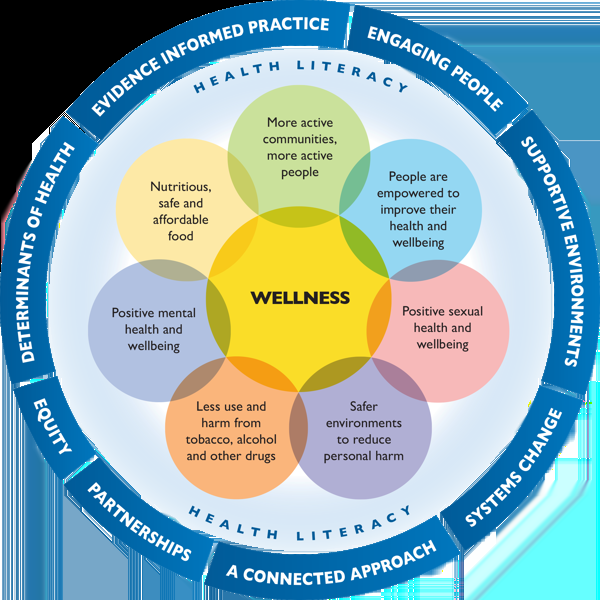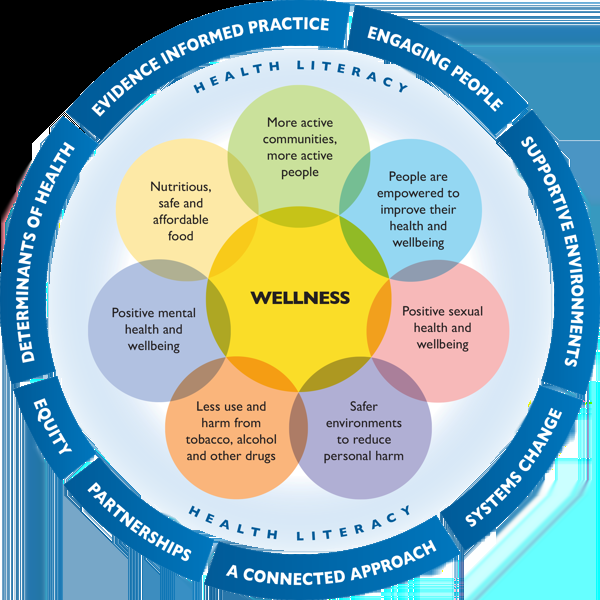Table of Contents:
- Eating Well
- Regular Exercise
- Adequate Sleep
- Mental Health
- Managing Stress
- Social Connections
- Regular Preventive Care
1. Eating Well
Consuming a balanced diet rich in fruits, vegetables, whole grains, and lean proteins is essential for overall health and wellbeing. Avoiding processed foods high in sugar, salt, and unhealthy fats can help prevent chronic diseases.
2. Regular Exercise
Engaging in physical activity on a regular basis not only helps maintain a healthy weight but also boosts mood, reduces stress, and improves cardiovascular health. Aim for at least 30 minutes of moderate exercise most days of the week.
Regular exercise is a crucial aspect of promoting health and wellbeing. It has been proven to have numerous benefits for both the body and mind. By incorporating regular physical activity into your routine, you can improve your overall quality of life.
Exercise helps to maintain a healthy weight, improve cardiovascular health, and strengthen muscles and bones. It also releases endorphins, which are known as the "feel-good" hormones, leading to a boost in mood and a reduction in stress and anxiety.
Incorporating different types of exercise, such as cardio, strength training, and flexibility exercises, can provide a well-rounded approach to improving your overall health. Finding activities that you enjoy and can easily incorporate into your daily routine will make it easier to stick with a regular exercise regimen.
Remember to consult with a healthcare professional before starting any new exercise routine, especially if you have any underlying health conditions. Making regular exercise a priority in your life will not only benefit your physical health but also improve your mental wellbeing.

3. Adequate Sleep
Prioritizing quality sleep is crucial for overall wellbeing. Aim for 7-9 hours of uninterrupted sleep each night to allow your body and mind to recharge and repair.
Getting enough quality sleep is essential for maintaining good health and overall wellbeing. Adequate sleep plays a crucial role in supporting our physical, mental, and emotional health.
Here are a few key reasons why adequate sleep is important:
- Physical Health: Sleep is necessary for the body to repair and regenerate tissues, muscles, and organs. It also helps regulate hormones that control appetite, metabolism, and immune function.
- Mental Health: Lack of sleep can lead to mood swings, irritability, and difficulty concentrating. Getting enough sleep can improve cognitive function, memory, and emotional resilience.
- Emotional Wellbeing: Quality sleep is essential for regulating emotions and coping with stress. It can also improve mood and overall sense of well-being.
To promote adequate sleep and improve your health and wellbeing, try the following strategies:
- Establish a consistent sleep schedule by going to bed and waking up at the same time every day.
- Create a relaxing bedtime routine to signal your body that it's time to wind down and prepare for sleep.
- Avoid stimulants like caffeine and electronic devices before bedtime, as they can disrupt your sleep.
- Ensure your sleep environment is comfortable, quiet, and dark to promote uninterrupted sleep.
- Engage in regular physical activity, but avoid vigorous exercise close to bedtime.
- Limit naps during the day, as they can interfere with your ability to fall asleep at night.
- Seek help from a healthcare professional if you have trouble sleeping or suspect a sleep disorder.
Remember, prioritizing sleep is a vital part of taking care of your overall health and well-being. By making sleep a priority, you can improve your quality of life and enjoy the benefits of better physical, mental, and emotional health.

4. Mental Health
Taking care of your mental health is just as important as physical health. Practice mindfulness, meditation, or seek therapy to manage stress, anxiety, and depression effectively.
Mental health is just as important as physical health. Here are four ways explain promote mental health how wellbeing:
- Practice Self-Care: Make time for activities that bring you joy and relaxation, such as meditation, exercise, or spending time with loved ones.
- Seek Support: Don't be afraid to reach out for help when needed. Talk to a trusted friend, family member, or mental health professional.
- Stay Active: Regular physical activity has been shown to improve mental health by reducing stress and anxiety.
- Stay Connected: Social connections are important for mental health. Stay in touch with friends and family, and seek out new social opportunities.
By following these tips, you can promote mental health and wellbeing in your everyday life.

5. Managing Stress
Chronic stress can negatively impact your health and wellbeing. Find healthy coping mechanisms such as exercise, hobbies, or relaxation techniques to reduce stress levels and promote overall wellness.
Stress can have a negative impact on both our physical and mental health. It is important to take steps to manage stress in order to promote overall health and wellbeing.
Here are some tips on how to manage stress:
- Practice relaxation techniques such as deep breathing, meditation, or yoga.
- Exercise regularly to release endorphins and reduce tension.
- Eat a healthy and balanced diet to fuel your body and mind.
- Get plenty of rest and prioritize sleep for optimal recovery.
- Engage in activities you enjoy to boost your mood and reduce stress.
By incorporating these strategies into your daily routine, you can effectively manage stress and promote your overall health and wellbeing.

6. Social Connections
Building and maintaining strong social connections with friends, family, and community can improve mental health, reduce feelings of loneliness, and provide a support system during challenging times.
Social connections play a crucial role in promoting health and wellbeing. Maintaining strong relationships with friends, family, and community members can have a positive impact on both our physical and mental health.
Ways to Promote Social Connections for Health
- Join community groups or clubs that align with your interests.
- Participate in social events or gatherings to meet new people.
- Volunteer your time to help others and connect with like-minded individuals.
- Reach out to old friends and family members to strengthen existing relationships.
- Use social media to stay connected with friends and family members who may be far away.
By prioritizing social connections and nurturing relationships, we can improve our overall wellbeing and lead happier, healthier lives.

7. Regular Preventive Care
Visiting your healthcare provider regularly for check-ups, screenings, and vaccinations can help prevent or detect potential health issues early on. Stay up to date with recommended preventive care guidelines.
Preventive care plays a crucial role in promoting overall health and wellbeing. By taking proactive steps to prevent illness and maintain good health, individuals can live longer, healthier lives.
Benefits of Regular Preventive Care:
- Early detection and treatment of health issues
- Improved overall health and quality of life
- Reduced healthcare costs in the long run
- Increased longevity
Tips for Promoting Health and Wellbeing through Regular Preventive Care:
- Visit your healthcare provider for regular check-ups and screenings
- Stay up to date on vaccinations and immunizations
- Maintain a healthy diet and exercise regularly
- Get enough rest and manage stress effectively
- Avoid harmful habits such as smoking and excessive drinking
- Stay informed about your family health history and genetic risks
- Follow any recommended preventive care guidelines provided by your healthcare provider
Remember, prevention is always better than cure. By prioritizing regular preventive care, you can take control of your health and wellbeing for a brighter future.

Key Takeaways:
- Eat a balanced diet rich in fruits, vegetables, and lean proteins.
- Engage in regular physical activity to boost mood and maintain a healthy weight.
- Prioritize quality sleep for optimal physical and mental health.
- Take care of your mental health through mindfulness and therapy.
- Manage stress effectively with healthy coping mechanisms.
- Build strong social connections for emotional support and wellbeing.
- Visit your healthcare provider regularly for preventive care.
FAQ:
Q: How can I start promoting my health and wellbeing?
A: Begin by making small, sustainable changes to your diet, exercise routine, and sleep habits. Seek support from friends, family, or healthcare providers if needed.
Q: Is it important to prioritize mental health alongside physical health?
A: Yes, mental health and physical health are interconnected. Taking care of your mental health is essential for overall wellbeing.



Recent Comments